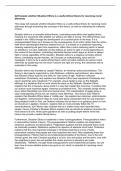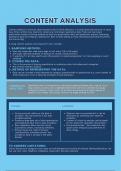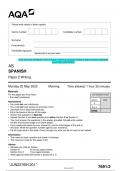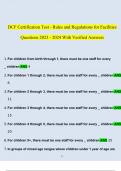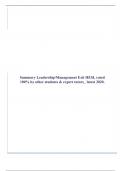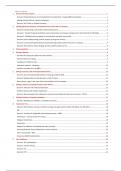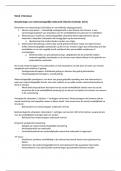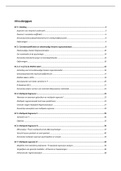Essay
Edexcel Religious Studies AS/A-Level - Unit 2 A study of three ethical theories - 2.2 Situation ethics
- Institution
- PEARSON (PEARSON)
This essay covers unit 2.2 of the Edexcel Religious Studies specification - Situation ethics - in unit 2 A study of three ethical theories. It is used in Section C of Paper 2 (Question 4), includes a synoptic link, and can be tailored to earlier questions of the paper. This essay begins with an int...
[Show more]
